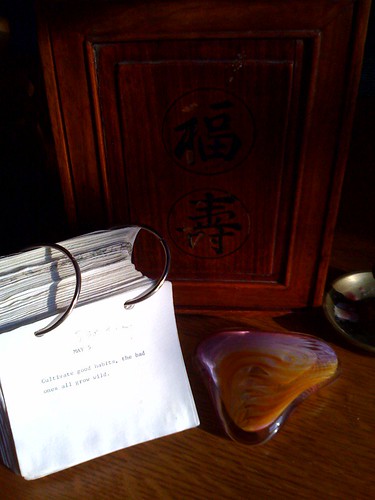It would piss you off, right? I know it would really make me angry if that happened to my mom, but I can’t check because the information is hidden behind a registration wall AND a “member in good standing/temple recommend number” wall. Because when she was alive, she was really horrified by the idea that everyone in her family had been baptized against their will, after they died, and that someday she would, too.
Well, it’s apparently happened to President Obama’s mother, Stanley Ann Dunham. I think it’s a terrible breach of spiritual protocol, the church’s own supposedly “hard and fast” but frequently broken rules, and the normal bounds of human decency.

I ran across this first at Wonkette, but it’s such a personal issue for me (growing up as I did in Utah, as a non-Mormon) that after the first horrified reading, the flip, arch style that usually makes me giggle like a twelve-year-old wasn’t what I wanted to quote. So I went to the source:
A reader sent me a tip about this last week. But it’s a sensitive topic, sure to cause the President some anguish, so I waited until I could find more information. I now have more information. And what I have is troubling.
A reader contacted me last week, saying that last year, in the heat of the presidential campaign, the Mormons had posthumously baptized Barack Obama’s mother, Stanley Ann Dunham. Baptizing the dead of other faith’s, secretly and without the consent of their families, is a common Mormon practice. For the past fifteen years the Mormons have caused quite a stir by forcibly baptizing Jewish Holocaust victims – in other words, converting them to Mormonism – despite strong objections from the Jewish community.
This issue comes up every few years: the Utah church has to put out a lot of fires and claim that members had overstepped the rules by baptizing people who were still “within living memory” and/or baptizing people who had died in the Holocaust. In a way, this practice completes the “final solution” of the genocide, by erasing the Jewish identity of each victim.
The LDS people who do this are operating from a spiritual compulsion: they truly believe that everyone on Earth must be enrolled in the record archives after death, and supposedly these dead souls can “choose” to accept a faith that has been imposed on their memory via an efficient, if not unholy bureaucracy. These people take on the role of victim when living relatives object to the practice of baptism for the dead, because their beliefs are being attacked. This, I find to be almost as offensive and infuriating as the practice itself. It’s spawned a huge industry, and of course as the archives are available to anyone to search, the hobby of geneology owes a lot to the efforts of countless workers who’ve scoured the Earth, searching out and scanning birth, death, and census records. Not to mention the countless well-meaning members who go to their local temples armed with the records of the dead, being baptized and anointed or whatever takes place, wearing their spey-cial tem-ple gar-mints.
Personally, I think it’s all a bunch of crap.
Sorry, family members and friends. That’s my opinion.
I’m a believer in Christ, and I’d like to think that there will turn out to be a Heaven where all our dead family and friends are waiting for us (and of course, OUR PETS are waiting impatiently, too). But I’m enough of a rationalist to realize that there may be nothing at all after death, or something so unimaginably different from our living existence that it can’t be put into human context, let alone words. I prefer to be a follower of the Way while I’m still alive and kicking, and I struggle try to live a more spiritually grounded life and reach out to people in need. I don’t succeed at it, much, but I try. This whole issue of one faith imposing itself on people’s dead loved ones, no matter what they believed (or didn’t believe), just bothers the shit out of me.
I did try to pull some records from the FamilySearch.org site (no linky love for you! ) and was rather surprised to find that I could get a text document with Mom’s name, birth date, death date, AND SOCIAL SECURITY NUMBER without having to even register. I attempted to register under a bogus name and found that to get to the REALLY good stuff, you have to give an actual record number proving that you’re a member in good standing. But I did look at records for various Colorado Springs relations on my mom’s side – this is probably how my cousin Bill did most of his research for his genealogy hobby, and the family history book that he self-published.
I can almost hear Mom holding forth now on today’s news; she’d be adding another note to her “to be read after my demise” papers via dictation as we speak.


